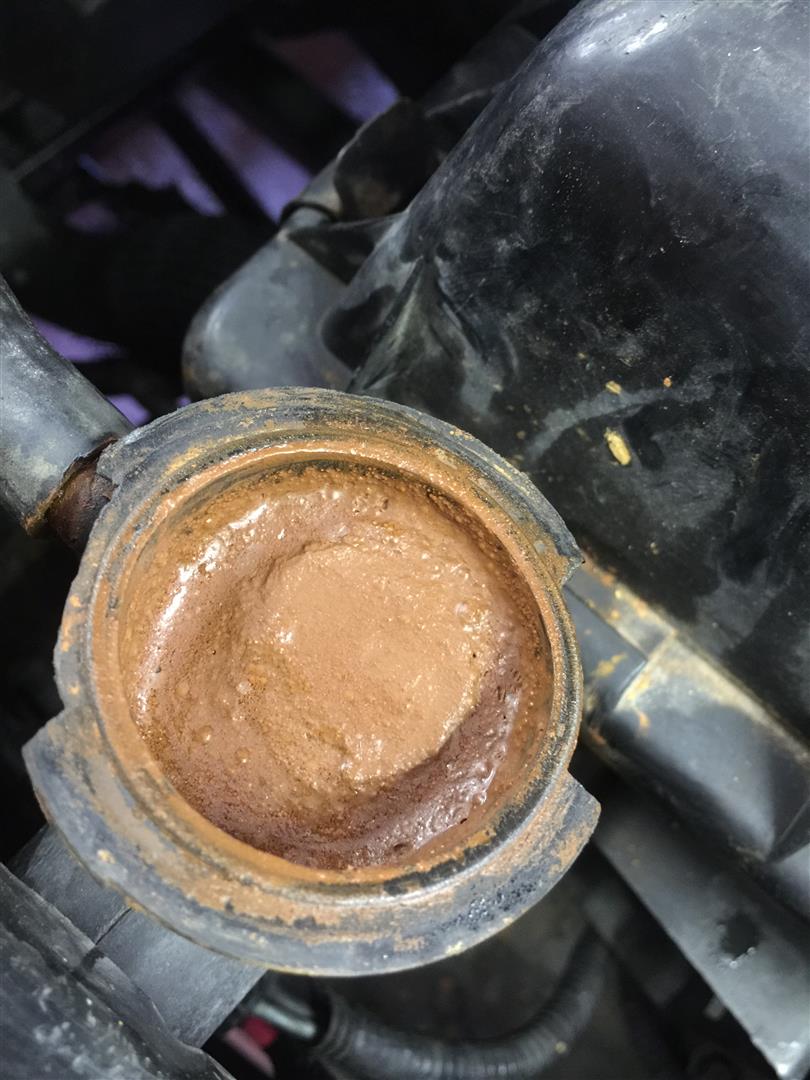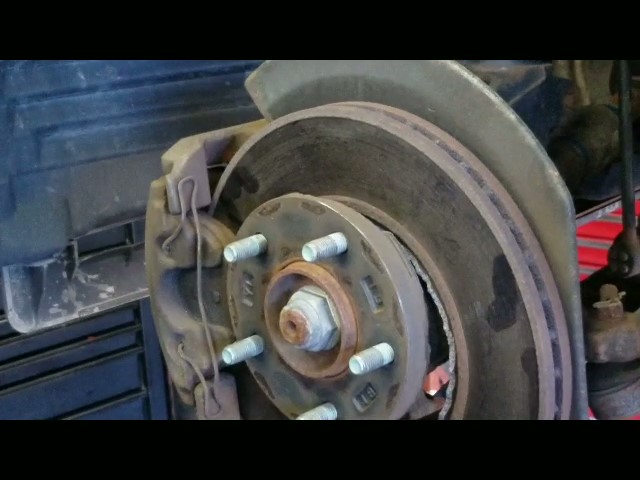Posted on 10/15/2024
Is your car not running like usual? Is it stalling or surging? Rocking or shaking? Getting issues such as these checked out as soon as possible is ideal as it could grow into a bigger issue if you let it go. There could be several reasons why your car is running rough. Here are some common issues to consider: 1. Fuel Issues: Dirty fuel injectors or a clogged fuel filter can affect the flow of fuel to the engine. Also, a weak (aged), a bad fuel pump, and fuel leaks. 2. Ignition Problems: Worn spark plugs, ignition coils, or issues with the ignition system can cause misfires, leading to rough running. 3. Air Intake Issues: A dirty or faulty mass airflow sensor, air filter, or intake manifold can disrupt the air-fuel mixture. 4. Vacuum Leaks: Leaks in the vacuum system can create an imbalance in the air-fuel mixture, leading to performance issues. 5. Engine Timing: Problems with engine timing, such as a worn timing belt or chain, can cause rough running. Cam shaf ... read more
Posted on 1/10/2023

A brief introduction to Car Coolant: This picture shows the worse consistency your coolant can have. Coolant fluid should flow like water. Coolant keeps your car operating at the temperature it needs to be at. Under the hood, it keeps your car from overheating and causing serious damage, like destroying the engine or causing leaks that can damage other systems. In the cabin where you spend most of the time, it affects your air conditioning and heating system. What and Where is the coolant system? The coolant system works to keep your engine from overheating. It absorbs the heat and pushes the now-hot coolant toward the radiator where it is cooled. Major parts of the coolant system include the coolant reservoir, water pump, radiator, thermostat, hoses, and cylinder head in the engine. The Coolant system is in the front end of your car and around your engine block. What can go wrong if you do not change your coolant or if the ... read more
Posted on 12/23/2022
Kinds of key fobs There are quite a few types of key fobs in the market today. The most common today is the switchblade or flip-style key fob, this one gives you the ability to hide the key when it is not in use. Key fobs range from aftermarket fobs to key fobs to ones that link directly to the Vin of your car, to the keyless fob. Key Fobs are getting more technologically advanced as time goes on. Some have remote start; some can summon your car and even park it! How often do the batteries need to be changed? For most key fobs the batteries last 3-4 years. Sometimes key fobs die without warning but usually, they start with not locking or unlocking the car with a single push of the button and build to it taking multiple tries to open or lock your car. Depending on the type of key fob you have you may be able to change the battery on your own with the battery size for your fob and a small screwdriver and the help of YouTube. If that sounds tedious t ... read more
Posted on 10/27/2022
It is important to check the fluids under your hood regularly. Sometimes it can be confusing under there and it is important to get the fluids into the right place. Colin and Pooh Bear walk you through what to look for in this video to take all the guesswork out of figuring out what fluid goes where. https://youtu.be/S_towp5Q0WM The fluids you should be checking at least once a month are: Oil Windshield wiper fluid Power steering fluid Brake Fluid Coolant Transmission Fluid- This may or may not be in your car. Some cars have an electric transmission, which does not need fluid. The reason for the monthly check is to catch a leak and to check the color and quality of the fluids. For warned is forearmed and catching things early can not only help your car but your wallet as well.
Posted on 1/20/2022
.jpg)
Car Batteries and the Cold It is cold outside. Winter is here and it is the time of year that batteries start showing their age. There are multiple reasons as to why your battery is losing charge. Batteries are only expected to last 3-5 years, and that is with a good alternator. There are other factors that can lessen your battery life. Driving Habits Sometimes not taking the scenic route will cost you. If you only drive short trips that can lessen your battery life. Your alternator will not be able to recharge your battery usage. A short trip is considered a half-hour or less. Freezing weather Fully charged batteries will only freeze at around -75 degrees, but if it less than full it can freeze at around 32 degrees. Therefore, when it gets cold outside people often find that their car battery will not start in the morning. Which is frustrating and inconvenient. Idling Idling for prolong times ... read more
Posted on 7/15/2021
Summer is here and living is easy! After the long cold year of 2020, we are ready to get out and live a little bit more. If you, like most Americans this summer, are planning on a trip by car make sure you get your car checked before you go. Unfortunately, due to covid, the car repair industry is still scrambling to get parts. This is forecasted to last into 2022. Parts that use to take us 2 days to receive now have taken as long as 6 weeks. This is also useful to keep in mind as you plan to send your kids off to school and/or tailgating season approaches. If you suspect something is wrong with your car, try to bring it in right away so we can order the parts you need in time for your big trip. Being preemptive instead of reactive is more important now than ever to keep your life running as smoothly as possible. As always, we here at Sunny Service Center, are here for you and look forward to seeing you
Posted on 4/25/2019
The Season of Pot holes is upon us! Winter is hard on everyone and everything, yes that means on your roads and cars as well. That is why April is Car care Aware month. Its time to freshen up for the Spring. The biggest threat to your car right now is pot holes and neglect of maintenance. Pot holes meh, am I right? They come back every spring like flowers. They are caused by water seeping into the cracks of the pavement, then freezing and thawing, and then being driven on causes the pavement to weaken and eventually give. If you lucky your city is on them like white on rice. Either way they are a danger to your car. Alignments, Tires, Hubs, your exhaust, your under carriage and depending on how deep it is anything within its evil grasp. It can cause leaks, dents and compromise the integrity of parts and sometimes clips can come off and parts can start to drag. Is there any way to avoid them? Unfortunately, there’s no guarantee, that’s because your car can ... read more
Posted on 10/26/2018

Rotors What are they? Rotors, with assistance from the brake pads and calipers, cause your car to slow down and/or stop. They are the circular metal part that the brake pads rub against to cause the wheels to stop spinning. They are as important as brake pads for stopping. Why do they go bad? Heat isn’t a friend of metal parts. Heat from friction can cause warping and wear. For those of you that remember LP records, think of records that were left in the sun. Signs you need new rotors. Squeaking, rough stopping, vibrating when slowing, When your rotors go bad you will hear it and feel it. Make it over to your mechanic as soon as possible. Helpful Info Rotors should be replaced every 30-70 thousand miles. And when you change the rotors you should change your brake pads too. Since the rotors and brake pads rub together the brake pads are ‘mated&rsquo ... read more
Posted on 10/10/2018
.jpg)
Child Car seat safety: Congratulations! You have yourself a mini me! Now you have the pleasure of figuring out your child’s car seat for the next 80 pounds or so. Fun times. With all the changing laws, recommendations, and car seats, this can be a confusing and stressful time. You want to keep your precious one safe, but you would like for ‘them’ to hurry up and decide the right way to do that. As AAP (American Academy of Pediatrics) just changed the rear facing car seat recommendations to rear facing until 4yrs, it doesn’t look like they’ll get it together anytime soon. There is a way to help keep your sanity though, whenever you hear the recommendations have changed look at NHTSA (National Highway Traffic Safety Administration) website, it is THE guideline. (they have not changed their recommendation of three years old) Car seats have grown in safety and complexity from the salad days of the burlap sack, to the first ac ... read more
Posted on 9/11/2018
The next week and a half is looking to be very wet and, as we are already seeing, flooding has begun. Since our flood water is salt it can be very damaging to vehicles. We’d like to remind everyone that driving thru salt water is a big no-no. Salt water is corrosive. It will eat away at your car. Anything over 4 inches will damage a sedan sized vehicle. Remember tow trucks will not rescue you until the water recedes, so as I like to say, Better safe than sorry. So, If you think the water will reach your under carriage I repeat, do not drive thru. Electrical system and combustion systems do not like water and your car is basically these two systems. Also water plus electricity equals electrolysis (which causes the blue crude you sometimes see near battery terminals) If you find yourself in any of these scenarios, here is my advice to you: If you are driving and find yourself facing a flood, turn around! Do not attempt to go thru the water. You never know what is unde ... read more